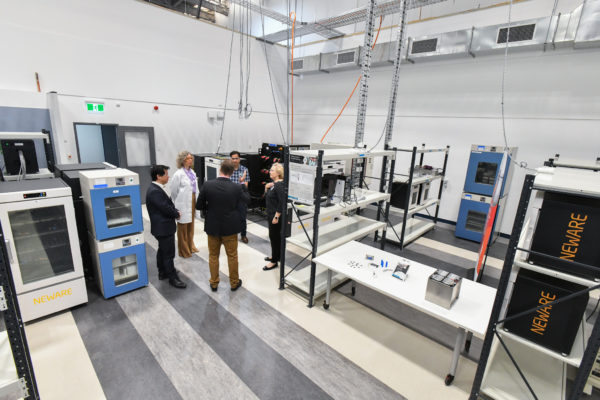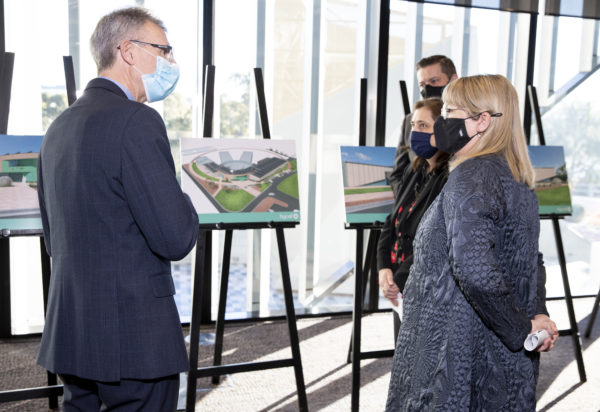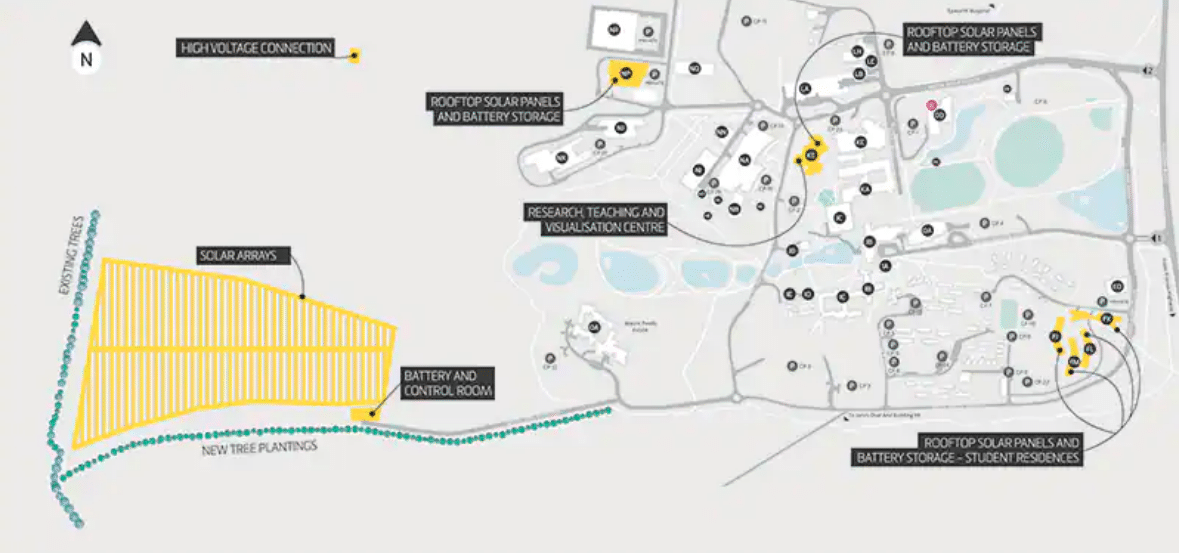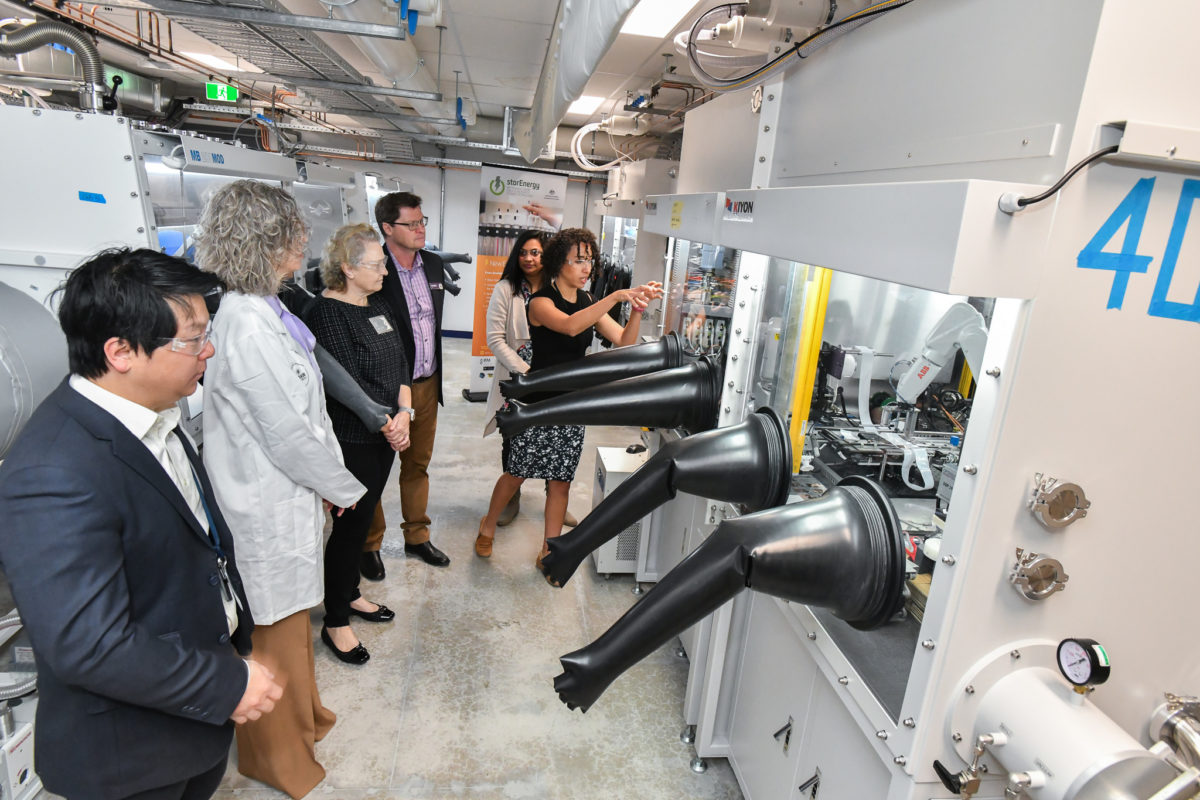The Battery Research and Innovation Hub at Deakin will seek to advance existing lithium technologies such as well as focus on sustainable alternatives such as sodium batteries, the university says.
The new purpose-built facility features a pilot production line to manufacture advanced battery pouch cells, as well as a dedicated research laboratory for new battery design, development, and prototyping. Crucially, it will also have a cell and systems test facility for multiple battery types and sizes.
Alongside educating future workers, Deakin says the hub will further Victoria’s role in the global supply chain for advanced batteries, as well as meet the bespoke and specialised battery needs of industry partners, including catering specifically to the defence and agriculture sectors, as well as for disaster zones and health settings.

Image: Deakin University
Funding for the east Melbourne facility came from both the Victorian government, which allocated $5.2 million, and Deakin University, which provided $5.1 million.
Deakin, a beacon
The Battery Hub is actually one of two major projects at the university to have attracted significant state government funding, the other being Deakin’s Hycel Technology Hub for hydrogen.
Having secured a total of $14 million from the Victorian government, the lion’s share of that, $9 million, was allocated to Hycel.
This Hycel Technology Hub, similar to the battery hub, will be devoted to the development, testing, training, demonstration and manufacture of hydrogen fuel technology at scale.

the Hon. Gayle Tierney MP, Minister for Training and Skills, Minister for Higher Education; the Hon. Lily D’Ambrosio, Minister for Energy, Environment and Climate Change, Minister for Solar Homes; Will Fowles, Member for Burwood, at the funding announcement in 2021.
Image: Deakin University
It is being constructed on Deakin’s Warrnambool campus, on the coast in Victoria’s west – a region slated to become one of Australia’s future regional hydrogen hubs as part of the National Hydrogen Strategy. It is planned to include a fuel cell wing with specialised fuel cell assembly and testing equipment, plumbed with hydrogen.
At the time of the funding announcement in 2021, Deakin expected Hycel to be completed by December this year – though it appears the launch of both hubs have run slightly behind schedule.
Like the battery hub, the Hycel facility is intended to develop an education pipeline.
Deakin has no shortage of interesting renewable technology projects on the go. Also in 2021, the university opened its new microgrid at the Waurn Ponds campus. The microgrid isn’t just a means for the university to power itself renewably, but also serves as a “living laboratory” – a chance to model, test, and optimise what’s possible with power.

Deakin University
“We have 6,000 data points on our microgrid,” Director of Deakin’s Energy Initiative, Dr Adrian Panow, told pv magazine Australia at the time. “So it becomes a very complex system very, very quickly.”
The $23 million microgrid is comprised of a 7 MW solar farm (made up of 23,000 ground mounted solar panels – the largest on any Australian university campus), a 2 MWh lithium iron phosphate battery, 250 kW of distributed rooftop solar (833 panels) as well as a series of smaller battery systems with a collective capacity of 30 kWh.
Additionally, earlier this year Deakin was awarded $50 million in federal funding for its Recycling and Renewable Energy Commercialisation Hub, or ‘REACH’ project. The university at the time claimed it would be the largest recycling and clean energy advanced manufacturing ecosystem in Australia.
Deakin isn’t Australia’s only beacon for renewable technologies and research – with important research being done at the University of New South Wales, the Australian National University, the Universities of Technology in Sydney and Queensland, and Wollongong – just to name a few.
This content is protected by copyright and may not be reused. If you want to cooperate with us and would like to reuse some of our content, please contact: editors@pv-magazine.com.









1 comment
By submitting this form you agree to pv magazine using your data for the purposes of publishing your comment.
Your personal data will only be disclosed or otherwise transmitted to third parties for the purposes of spam filtering or if this is necessary for technical maintenance of the website. Any other transfer to third parties will not take place unless this is justified on the basis of applicable data protection regulations or if pv magazine is legally obliged to do so.
You may revoke this consent at any time with effect for the future, in which case your personal data will be deleted immediately. Otherwise, your data will be deleted if pv magazine has processed your request or the purpose of data storage is fulfilled.
Further information on data privacy can be found in our Data Protection Policy.